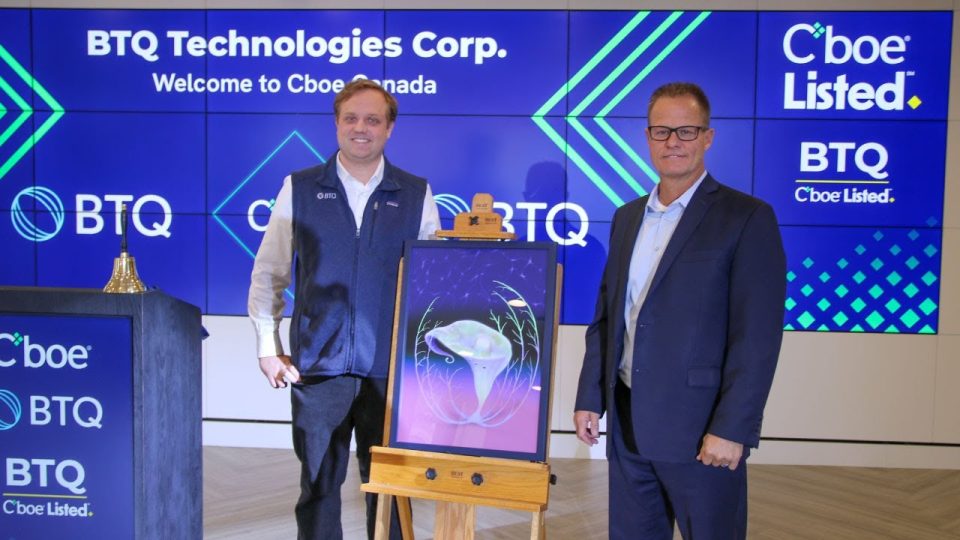BTQ Technologies Corp. (CBOE CA: BTQ, FSE: NG3, OTCQX: BTQQF), a global quantum technology firm dedicated to safeguarding mission-critical networks, has made a significant stride in the blockchain sector with the publication of its research paper titled “Proof-of-Work Consensus by Quantum Sampling” in the esteemed journal Quantum Science and Technology, published by IOP Publishing. This peer-reviewed paper introduces an innovative approach that leverages quantum computing to enhance blockchain consensus mechanisms, marking a pivotal development in sustainable and secure blockchain technology.
The research, co-authored by BTQ’s team of experts, proposes a novel method using coarse-grained boson sampling (CGBS) to validate blockchain transactions more efficiently. Traditional Proof-of-Work (PoW) systems, such as those utilized by Bitcoin, are notorious for their high energy consumption and environmental impact. BTQ’s approach aims to address these sustainability challenges while maintaining the security essential for blockchain operations.
By implementing CGBS, the proposed quantum-based PoW consensus method significantly reduces the energy required for transaction validation. This advancement not only enhances the speed of blockchain operations but also aligns with global sustainability goals, making it an attractive alternative to conventional mining methods.
One of the key highlights of this research is its emphasis on energy efficiency. The traditional PoW mechanism demands substantial computational power and energy resources, raising concerns about its environmental footprint. In contrast, BTQ’s quantum-powered solution utilizes advanced quantum hardware to perform mining tasks with minimal energy expenditure. This shift not only lowers operational costs but also contributes to a greener technology landscape.
Moreover, the proposed method is designed to be resilient against potential attacks from quantum computers, ensuring long-term security for blockchain systems as technology continues to evolve. This aspect is crucial for businesses and organizations looking to adopt blockchain solutions without compromising on security.
Nicolas Roussy Newton, COO of BTQ Technologies, stated, “This research reflects our commitment to driving innovation at the intersection of quantum computing and blockchain technology. By introducing a sustainable and quantum-secure approach to consensus, we are tackling environmental challenges while ensuring the future viability of blockchain systems.” This statement underscores BTQ’s strategic focus on developing scalable solutions that meet the demands of an increasingly digital world.
The publication underwent a rigorous peer-review process, affirming the quality and significance of the research. It is now available for open access on the Quantum Science and Technology website, allowing widespread dissemination among researchers and practitioners in the field.
BTQ’s research showcases its leadership in quantum technologies as well as highlights a broader trend toward integrating sustainability into technological advancements. As industries grapple with environmental concerns, innovations like those presented by BTQ can play a pivotal role in shaping a more sustainable future for blockchain technology.
This publication positions BTQ Technologies at the forefront of quantum computing applications in real-world scenarios, demonstrating its ability to translate cutting-edge science into practical solutions. As businesses increasingly seek ways to enhance efficiency and reduce their carbon footprint, BTQ’s findings offer a promising pathway forward.
BTQ Technologies’ latest research represents a significant advancement in both quantum computing and blockchain technology. By addressing energy efficiency and security concerns inherent in traditional PoW systems, BTQ is paving the way for more sustainable and secure digital networks that can adapt to future technological challenges.

